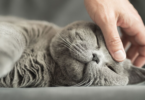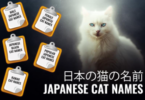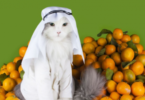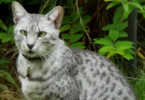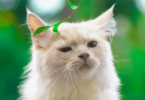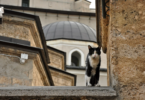For centuries, cats have held a special place in American homes. From revered mousers on the frontier to cherished companions in modern apartments, these furry enigmas have captured our hearts. But before welcoming a feline friend into your life, there’s a crucial decision: choosing the purrfect name.
This comprehensive guide delves into the fascinating world of American cat names, exploring trends, influences, and tips to help you find the ideal moniker for your whiskered companion.
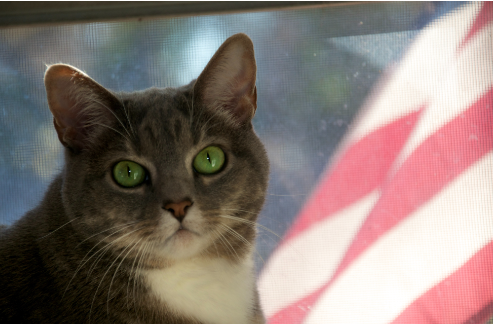
A Nation of Cat Lovers: A Historical Look at American Cat Names
The history of American cat names reflects a nation’s evolving relationship with felines. Early colonists valued cats primarily for their pest control abilities. Names like “Mouser” or “Tom” were straightforward and reflected their practical function.
As cats transitioned from working animals to cherished companions in the 19th and 20th centuries, names became more diverse. Popular culture played a significant role, with literary and theatrical characters influencing choices. Names like “Duchess” or “Hobbes” (inspired by Calvin and Hobbes) became trendy.
World Wars further impacted naming trends. Names with patriotic themes like “Liberty” or “Victory” gained popularity. Additionally, the influence of other cultures can be seen in the rise of Egyptian-inspired names like “Cleopatra” or “Isis” following the discovery of King Tut’s tomb in 1922.
The Name Game: Popular Trends in American Cat Names
Today, American cat names encompass a delightful mix of influences. Here’s a breakdown of some key trends:
- Classic Charm: Enduring favorites like “Oliver,” “Luna,” “Charlie,” and “Bella” remain popular choices. These timeless names offer a sense of elegance and familiarity.
- Pop Culture Prowess: Movies, television shows, and even video games inspire many cat names. From Disney’s “Simba” and “Grumpy Cat” to characters from “Game of Thrones” like “Khaleesi” and “Arya,” pop culture offers a vast pool of inspiration.
- Food for Thought: Food-themed names are surprisingly popular. “Biscuit,” “Muffin,” “Ginger,” and “Butterscotch” add a touch of whimsy and sweetness.
- Nature’s Calling: Names inspired by the natural world evoke a sense of beauty and wonder. “Willow,” “Aspen,” “River,” and “Sky” are just a few examples.
- Royal Treatment: Regal names like “King,” “Queen,” “Duchess,” and “Duke” imbue your feline friend with an air of majesty.
Beyond Trends: Choosing a Name that Fits Your Cat
While trends offer a starting point, the most important factor in choosing a name is how it fits your cat’s personality and appearance. Consider these tips:
- Think about your cat’s looks: Does your cat have a distinctive coat pattern or fur color? Names like “Patches,” “Whiskers,” or “Ginger” can highlight these features.
- Observe your cat’s personality: Is your cat playful and energetic? A name like “Zoom” or “Spark” might suit them. For a more relaxed cat, “Sleepy” or “Marshmallow” could be perfect.
- Consider a name’s length: Short, one-syllable names are easier for cats to learn. However, longer names can sound regal or playful depending on the tone.
- Say it out loud: Does the name roll off the tongue easily? Will you be comfortable calling it in public?
Popular Cat Name Trends by Decade
| Decade | Popular Trends | Examples |
|---|---|---|
| 1900s | Practical & Simple | Mouser, Tom, Whiskers |
| 1920s & 1930s | Pop Culture & Literary Influences | Duchess, Garfield, Hobbes |
| 1940s | Patriotic Themes | Liberty, Victory |
| 1950s & 1960s | Classic & Elegant | Oliver, Luna, Charlie, Bella |
| 1970s & 1980s | Unique & Whimsical | Mittens, Patches, Whiskers |
| 1990s & 2000s | Pop Culture Explosion | Simba, Grumpy Cat, Khaleesi |
| 2010s – Present | Diverse & Personalized | Food-themed, Nature-inspired, Pop Culture References |
Finding Inspiration: A Look at Breed-Specific Names
Certain cat breeds have traditionally been associated with specific names. Here are a few examples:
Siamese: These elegant cats often have names that reflect their Thai origins, such as Names like “Siam,” “Thai,” or names meaning “jewel” in Thai like “Intan” (diamond) or “Ploy” (gem) are popular choices.
- Persian: Known for their luxurious fur, Persian cats often have regal names like “Darius,” “Cleopatra,” or “Caspian.”
- Maine Coon: These gentle giants often have names that reflect their size and origin, such as “Moose,” “Yogi,” or “Maine.”
- Sphynx: Hairless Sphynx cats inspire unique and sometimes humorous names like “Wrinkles,” “Dobby” (inspired by the Harry Potter character), or “Yoda.”
- Scottish Fold: These adorable cats, known for their folded ears, often have names that highlight this characteristic, like “Flopsy,” “Bendy,” or “Oriel” (meaning “little folded ear” in Latin).
The Power of a Name: How Your Cat Learns Its Moniker
Cats are intelligent creatures capable of recognizing their names. Here are some tips to help your cat learn their new title:
- Consistency is key: Use your chosen name consistently from the very beginning. Avoid using nicknames or variations.
- Positive reinforcement: Pair the name with positive experiences like feeding time or playtime. Use treats and praise to create a positive association.
- Keep it short and sweet: As mentioned before, short, one-syllable names are easier for cats to learn.
- Make it distinct: Avoid names that sound too similar to common household sounds or other pets’ names.
Beyond the Basics: Unique and Creative Naming Ideas
For those seeking a name beyond the ordinary, here are some creative approaches:
- Mythology & Folklore: Draw inspiration from Greek, Roman, or Norse mythology for names like “Artemis” (Greek goddess of the hunt), “Thor” (Norse god of thunder), or “Bastet” (Egyptian cat goddess).
- Foreign Languages: Explore beautiful names from other languages like “Luna” (moon in Spanish), “Yuki” (snow in Japanese), or “Roux” (red in French).
- Literary References: For bookworms, consider names inspired by favorite characters or authors, like “Gatsby” (The Great Gatsby), “Scout” (To Kill a Mockingbird), or “Poe” (Edgar Allan Poe).
- Wordplay & Puns: For a touch of humor, consider clever puns or wordplay names like “Sir Purrsalot,” “Meowgic,” or “Clawsome.”
Frequently Asked Questions (FAQs)
- How soon should I name my cat? It’s best to start using your chosen name as soon as you bring your cat home. Consistency is key for helping them learn it.
- Can I change my cat’s name? Technically, yes. However, it can be confusing for cats who are already familiar with their original name. If necessary, introduce the new name gradually, using positive reinforcement techniques.
- What if I can’t decide on a name? Make a list of your top contenders and spend a few days saying them out loud. See which one feels right and rolls off the tongue easily. You can also involve family and friends for their suggestions.
- Is it okay to have a long name for my cat? While shorter names are easier for cats to learn, some longer names can sound regal or playful depending on the tone. Ultimately, choose a name you feel comfortable saying.
Additional Resources
- The American Society for the Prevention of Cruelty to Animals (ASPCA): https://www.aspca.org/
- The Cat Fanciers’ Association (CFA): https://ecat.cfa.org/
- Behind the Name: https://www.behindthename.com/info/ (Great resource for exploring names from different cultures and languages)
Conclusion
Choosing the perfect name for your cat is a special and personal experience. By considering your cat’s personality, appearance, and your own preferences, you’ll find a name that truly reflects the unique bond you share. Remember, the purrfect name isn’t just about following trends, it’s about finding a moniker that rolls off the tongue and brings a smile to your face every time you say it.

